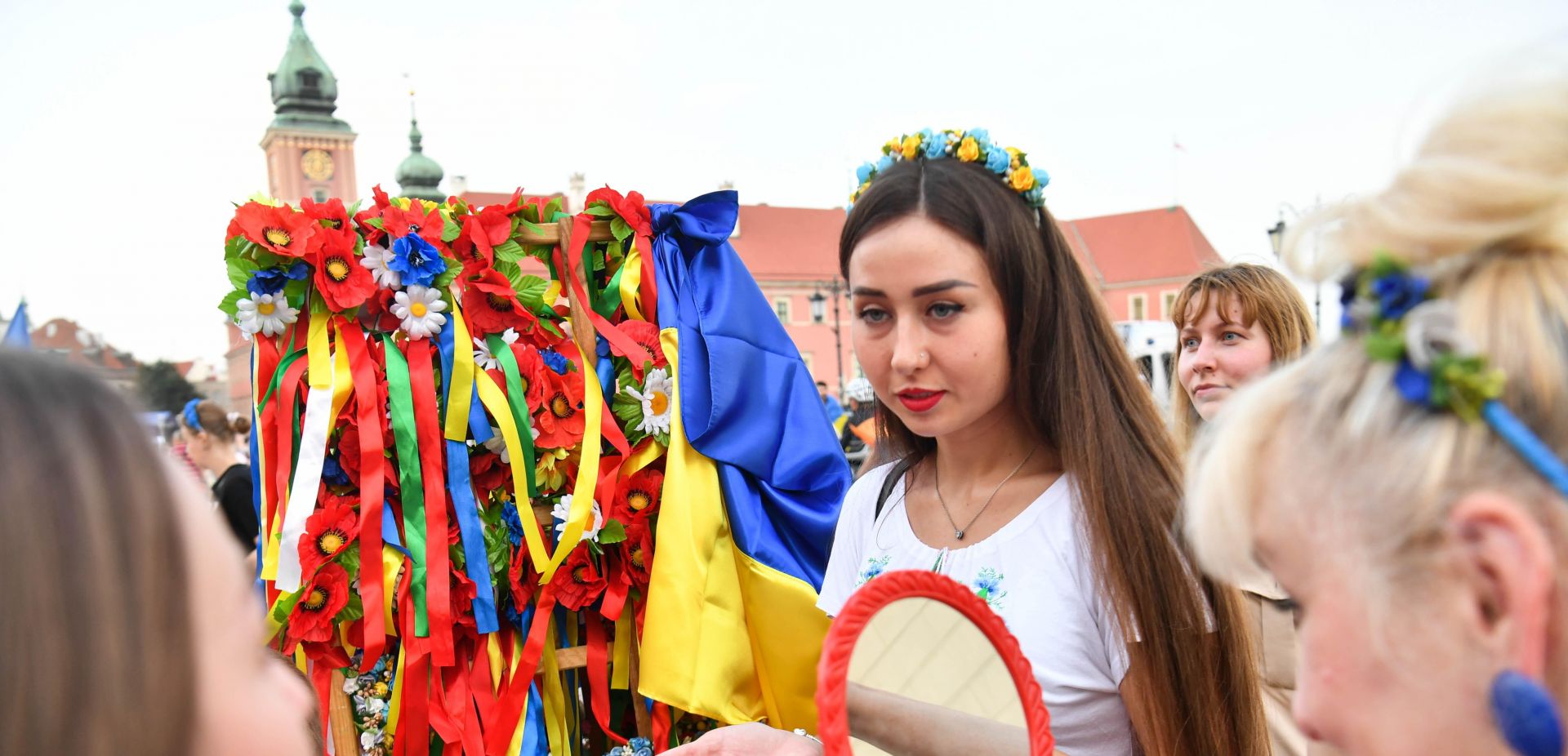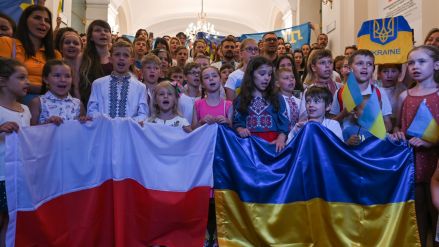The Ukrainian minority in Poland had played a rather modest role until recently. Now, that first there has been an influx of economic migrants, then, since February – also of refuges, the situation may change dramatically.
Until a few years ago, according to the 2011 census, Poland was home to ca. 39 thousand Ukrainians or, better to say, Polish citizens of Ukrainian origin. But soon afterwards hundreds of thousands of migrants began to arrive in our country looking for jobs. According to an Office for Foreigners report from December 2021, the number of Ukrainian citizens with valid resident permits in Poland exceeded 300 thousand. Others would go to and fro, but the group of those willing to stay was growing. And, in recent years, a few thousand of them obtained Polish citizenship. These people want to be active, also in the social and political sphere.
Most probably there are about 2 million migrants. Most of whom express their willingness to return home. How many will stay in Poland for good? Estimations vary; in May, a National Bank of Poland report said that 16% percent, i.e. over 300 hundred thousand wish to stay. It means that that the number of Ukrainians living in Poland will increase to over half a million, for sure there will be more Polish passport holders.
Operation “Vistula” and its consequences
Before WW II Ukrainians constituted more than 15% of Polish citizens. But the war changed everything. The Polish-Soviet border was drawn on the rivers: Bug and San, thus dividing territories inhabited by both Ukrainians and Poles.
 SIGN UP TO OUR PAGE
SIGN UP TO OUR PAGE

Under the so-called repatriation many of our compatriots were resettled to Poland within its new, post-war boundaries. Likewise, numerous Ukrainians were displaced to USSR. There were several phases of “repatriation”. Over the first one, in the second half of 1944, Poland had been left by nearly 20 thousand Ukrainians, i.e. over 5 thousand families. Further three stages were held until 1946. Some of the “stubborn” inhabitants of south-eastern Poland were displaced with the forces of the “Rzeszów” Operational Group combined of 4 infantry divisions, Border Protection Troops, Internal Security Corps, militiamen as well as security service officers. All together during this operation 480 thousand people (122 thousand families) were subject to displacement.
However, in the Bieszczady Mountains there still were Ukrainians as well as Lemkos and Boykos (some of whom auto-defining as Ukrainians, others – as members of other nations). And the Ukrainian Insurgent Army (UPA) was active at that time. Hence the 1947 decision of the Central Committee of the Polish Workers’ Party to carry out forced resettlement to the so-called “Recovered Territories”. Besides, it is not impossible that it was the Kremlin leadership to have pulled the strings here. Of course, the then Polish Army could easily eliminate the UPA, which numbered 2.5 thousand men in the Bieszczady without resorting to resettlement but, let us repeat, the political decision had already been made. In total, ca. 140 thousand people were displaced.
As a result, Ukrainians may be encountered in Masuria, Western Pomerania and Lower Silesia. And that is why in Górowo Iławieckie (Warmińsko-Mazurskie Voivodship) there operate a bilingual, Polish-Ukrainian, complex of schools (including an upper-high school) as well a Greek Catholic church; Ukrainians constitute a significant group in town. Likewise in Biały Bór in the Zachodniopomorskie Voivodship – there too is a similar complex of schools, a Greek Catholic church as well as a huge monument – in form of a Taras Shevchenko head. There are also Polish-Ukrainian schools in Legnica, Bartoszyce (Warmińsko-Mazurskie Voivodship) as well as in Przemyśl. It shows the dispersion of the Ukrainian population.
In dispersion
Such dispersion resulted in the Ukrainian minority having had difficulty to self-organize and engage in political activity. In contrast to that the Belarusians in Podlaskie Voivodship constitute a cohesive group and maybe that’s why it is easier for them to elect their MPs – their representatives, as a rule, ran on left-wing lists (e.g. Edward Czykwin or Jan Syczewski) even if they were Orthodox activists.

 SIGN UP TO OUR PAGE
SIGN UP TO OUR PAGE
 Under the so-called repatriation many of our compatriots were resettled to Poland within its new, post-war boundaries. Likewise, numerous Ukrainians were displaced to USSR. There were several phases of “repatriation”. Over the first one, in the second half of 1944, Poland had been left by nearly 20 thousand Ukrainians, i.e. over 5 thousand families. Further three stages were held until 1946. Some of the “stubborn” inhabitants of south-eastern Poland were displaced with the forces of the “Rzeszów” Operational Group combined of 4 infantry divisions, Border Protection Troops, Internal Security Corps, militiamen as well as security service officers. All together during this operation 480 thousand people (122 thousand families) were subject to displacement.
Under the so-called repatriation many of our compatriots were resettled to Poland within its new, post-war boundaries. Likewise, numerous Ukrainians were displaced to USSR. There were several phases of “repatriation”. Over the first one, in the second half of 1944, Poland had been left by nearly 20 thousand Ukrainians, i.e. over 5 thousand families. Further three stages were held until 1946. Some of the “stubborn” inhabitants of south-eastern Poland were displaced with the forces of the “Rzeszów” Operational Group combined of 4 infantry divisions, Border Protection Troops, Internal Security Corps, militiamen as well as security service officers. All together during this operation 480 thousand people (122 thousand families) were subject to displacement.





